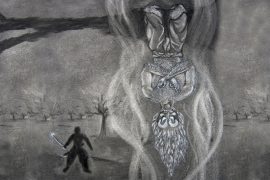You know, trees. They cannot be trusted. They are very….shady.
Did you find that to be a lame joke? Or did you laugh? If you did laugh, you found it funny, stretched your lips towards your cheeks, and laughed. Maybe, you giggled? Perhaps you shed tears (which, by the way, means you have a lousy sense of humour). But it caused a joyous reaction in your body. The question is: why does that reaction happen?
We start laughing when we are infants. Barely three months into breathing as a human, we start laughing. Sometimes we laugh while we sleep. Then we grow up and socialise; have friends. We laugh more with these friends than we do by ourselves. Why? It was a way of survival. Imagine yourself as a wandering Homo Sapien who saw another Homo Sapien. The first thing you would do is try to figure them out.
According to a study, when we meet new people, we laugh to please them. It can easily be understood if someone laughs as a pretence or genuine laughter. If, after being friends for a long time with someone, someone else believes you fake laugh with them, it means you need to re-evaluate your friendship.
To take this further, laughter is the equivalent of grooming in primates. The act of grooming requires trust and friendship. So does the act of genuine laughter, which indicates that you are comfortable with the person or group you laugh with.
Unfortunately, laughter is involuntary. Unless you are controlling it consciously, you cannot decide when to laugh and when not to. A fake laugh can be produced. A genuine laugh cannot. And if your genuine laugh is at a funeral, you either leave or bring all your neurons together to control it.
-30-
Copyright©Madras Courier, All Rights Reserved. You may share using our article tools. Please don't cut articles from madrascourier.com and redistribute by email, post to the web, mobile phone or social media.Please send in your feed back and comments to [email protected]











